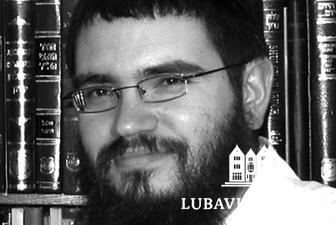In this, our third guest editorial by a Chabad representative, Rabbi Yossi Marcus confesses he's no dentist.
Why do people lie to their dentists? You know, "So, Jim, have you been flossing?" "Yeah, kind of, sure…well, last couple of weeks it was tough because we were in Cuba and we ran out of…"
It's your teeth, not the dentist's. The dentist only stands to gain if you don't floss. Yet we find ourselves denying or confessing as if the dentist were some kind of religious figure.
We also give excuses to cops. I was in a rush, I usually wear my seatbelt. Does the cop get injured if you don't wear your seatbelt? Does your cardioligist have a heart attack if you don't exercise?
As a rabbi, I find that people think I'm some kind of a dentist: "Rabbi, I haven't been to my synagogue since the High Holidays. I really meant to go, but you know how it is…." They're not even members of my congregation yet when they see me they feel they must justify or confess their lack of observance.
Often people will say to me at a Bar Mitzvah or at a chance meeting at a park, "Rabbi, I'm a bad Jew."
I never had a good response to this especially since I don't like this whole line of conversation. After all, I'm a rabbi, not a dentist; I don't do confessions. So I would just smile and wait for the conversation to turn to a different subject.
But after hearing this so many times, it got me thinking (which is a good thing). There is a plague afflicting many Jews: low Jewish self-esteem.
People are proud of their careers, their homes, cars, even their kids. But they have low Jewish self-esteem.
On the surface, this may seem like a good thing. They're being honest and maybe even a little remorseful.
But, something doesn't smell right. I began to sense that this statement was counter-productive. When a person says, "I'm a bad Jew," what they're really saying is, "I know what a Jew is supposed to be but I am a failure in that department and I've kind of made peace with it. There is some guilt involved, especially when I meet a rabbi (especially one with a beard), which I assuage by stating that I am a bad Jew, i.e., this is the way I am and I cannot change, so I'm absolved (but still not completely happy with the situation)."
But just as low self-esteem is bad for your health, low Jewish self-esteem is bad for your Jewish health. It may sound strange hearing this from a rabbi, but here goes:
You're not a bad Jew. You're a good Jew. You go to work every day to support your family. You're honest with your clients. You're good to your friends and family. You honor your parents. You give charity and go the AIPAC dinner every year. These don't just make you a good person, they make you a good Jew. Because being a good Jew means, primarily, being a good person, bringing G-d and G-dly notions such as justice and righteousness into the real world. Being a good Jew does not mean going to the synagogue. A Jew has to go to the synagogue but that's not what defines him or her as a good Jew or Jewess.
More central to being a good Jew is how we behave outside the synagogue. And most of the people that tell me they're bad Jews are pretty good people outside the synagoge (and inside, when they show up).
As we celebrate the holiday of Shavuot, the celebration of the Giving of the Torah, we relive our experience at Sinai, when we stood as one with one heart ready to receive the Torah. G-d gave us the Torah because He trusted us–He considered us to be good Jews.
In the end, I think it's healthier for us to view ourselves as G-d views us: good Jews.
Of course a good Jew can always become a better Jew….
–Rabbi Yossi Marcus represents Chabad of the North Peninsula, California.
He resides in S. Mateo, California, with his wife, Esty, and three daughters.

Be the first to write a comment.